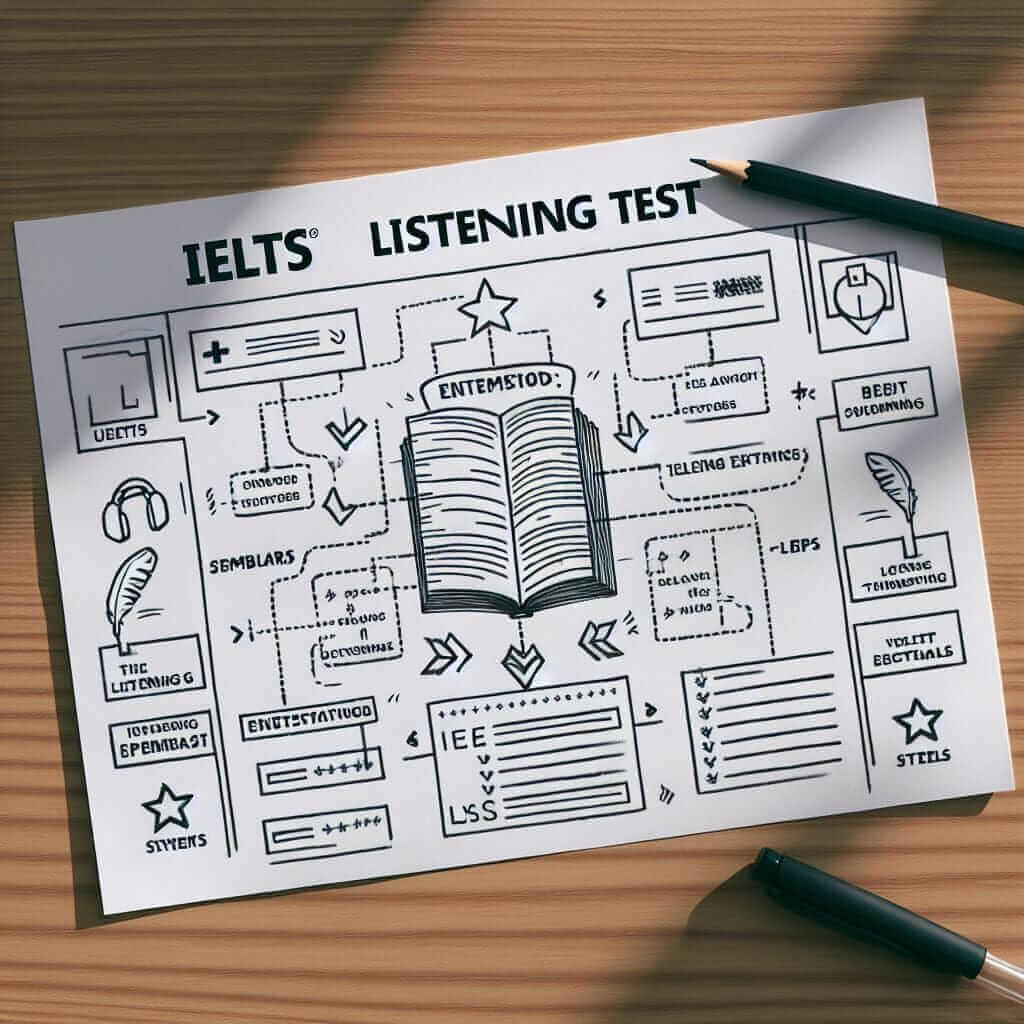As an IELTS instructor with over 20 years of experience, I often get asked, “Can I take notes in the IELTS Listening test?” The answer is a resounding yes! Effective note-taking can significantly boost your score in this section.
Why Note-Taking is Crucial for IELTS Listening
The IELTS Listening test presents a lot of information in a short amount of time. You’ll need to process different accents, understand various speaking styles, and remember key details to answer the questions accurately. This is where note-taking comes in as your secret weapon.
Benefits of Note-Taking:
- Improved Concentration: The act of writing helps you stay focused and engaged with the audio.
- Enhanced Memory: Jotting down keywords and phrases reinforces your memory and makes it easier to recall information later.
- Organized Information: Strategic note-taking allows you to organize the information logically, making it simpler to find answers when reviewing.
- Reduced Cognitive Load: By taking notes, you’re essentially offloading some of the mental effort required to remember everything, freeing up your brainpower to focus on understanding the content.
How to Master Note-Taking for IELTS Listening
Now that we’ve established the importance of note-taking, let’s dive into some practical strategies:
1. Use Keywords and Symbols
Focus on capturing the essence of what you hear using keywords and symbols. Don’t waste time writing complete sentences. For example:
- Instead of: The speaker recommends visiting the museum on a weekday to avoid crowds.
- Write: Museum – weekday – less crowded
2. Develop Your Own Shorthand
Create your own system of abbreviations, symbols, and shorthand to speed up your writing. For instance:
- w/ – with
- & – and
- b/c – because
- # – number
3. Practice Active Listening
While taking notes, remain fully attentive to the audio. Pay attention to:
- Signposting Words: These are words or phrases that signal transitions or important points (e.g., however, in contrast, the main reason, finally).
- Changes in Speaker: Be prepared to switch your focus when a new speaker begins.
- Emphasis and Tone: Often, the speaker’s tone of voice can clue you into the significance of information.
4. Utilize the Question Paper
Before the audio starts, use the time provided to quickly read the questions. This will give you an idea of what information to listen for. Underline keywords in the questions to guide your note-taking.
5. Review and Transfer Information
After each section of the listening test, you’ll have some time to check your answers. Use this time to review your notes and ensure they are clear and legible. Transfer your answers neatly to the answer sheet, paying close attention to spelling and grammar.
Example from an IELTS Listening Test
Let’s imagine a section of the listening test discusses travel options:
Audio Script: “For those seeking a more budget-friendly option, the local bus service offers a daily route to the city center. The journey takes approximately 45 minutes and departs every hour from the stop outside the library.”
Effective Notes:
- Budget – local bus
- City center – 45 mins, hourly, library stop

Top Tips for IELTS Listening Success
- Practice, Practice, Practice: Regularly practice taking notes while listening to English audio (podcasts, news, lectures).
- Experiment with Different Methods: Find a note-taking style that works best for you. Don’t be afraid to experiment with different techniques.
- Time Management: Be mindful of the time limits and avoid spending too long on a single question.
- Stay Calm and Focused: Nerves can hinder performance. Take deep breaths and maintain your concentration throughout the test.
Conclusion
Effective note-taking is a valuable skill that can significantly improve your IELTS Listening score. By implementing these strategies and practicing regularly, you’ll be well-equipped to confidently tackle this section of the exam. Remember, active listening, strategic note-taking, and staying calm are key ingredients for success in IELTS Listening!